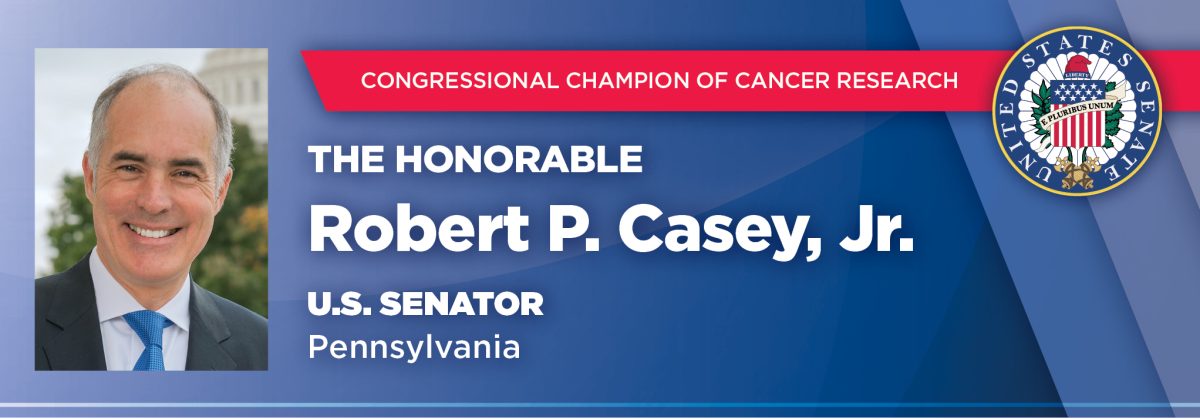The Honorable Robert P. Casey, Jr.

You were diagnosed with prostate cancer in January 2023 and underwent successful surgery in February 2023. Could you share how your cancer journey has influenced your work in Congress?
When I was diagnosed with cancer, I was fortunate to have an excellent prognosis and access to exceptional medical care. My recommended course of treatment was straightforward and, following a successful surgery on Valentine’s Day, my doctor confirmed that I don’t require further treatment. Millions of Americans aren’t so lucky. In Congress, I’m fighting to ensure every single American has access to world-class health care that doesn’t bankrupt themselves or their family. Affordability or access should never stand in the way of someone getting the care they need.
How has that personal experience shaped your approach to health policy and the importance of funding for cancer screening, prevention, and research?
I know from personal experience that regular cancer screenings and access to preventative health care can save lives. We must encourage Americans to regularly see their health care providers and receive recommended cancer screenings, and we need to make it easy and affordable to do that, especially for those in underserved communities. We also need to invest in cancer research to further treat and prevent cancer in the future.
Which policy priorities or legislative efforts do you share that would fuel better prevention, detection, and treatment of cancer?
Every year, I lead the charge in the Senate for robust funding for the National Institutes of Health, which includes the National Cancer Institute. Ensuring entities like the NIH have the funding necessary to continue advancing the science of cancer prevention, detection, and treatment is critical to the nearly two million people that are diagnosed with cancer each year. We must support our world-class researchers working tirelessly every day to find a breakthrough and save lives.
Americans also need health insurance that will allow them to afford cancer screenings and treatment. I’ve always been committed to defending and expanding access to Medicaid, Medicare, and marketplace plans as well as ensuring that cost is not a barrier to getting health care; my cancer diagnosis gave me a more personal stake in that fight.
Finally, it’s unacceptable that where people lives or how much money they make can be the difference between life and death in cancer cases. Last Congress, I introduced and passed legislation to expand the reach of community health workers, which helps connect people in underserved communities with quality health care and other supports to improve health and well-being, because health equity is a priority to me and we must continue to advocate for people and strategies that will help us combat health disparities.
What is your message to the scientists and physicians working to make progress against cancer?
Thank you for your tireless work in the fight against cancer. It’s your commitment to better understand and treat cancer that gives me hope for a future where cancer diagnosis has much less of an impact than it does today. Know that I will continue to advocate on your behalf to ensure that you have the support and resources needed to do the work that will ultimately save lives.
